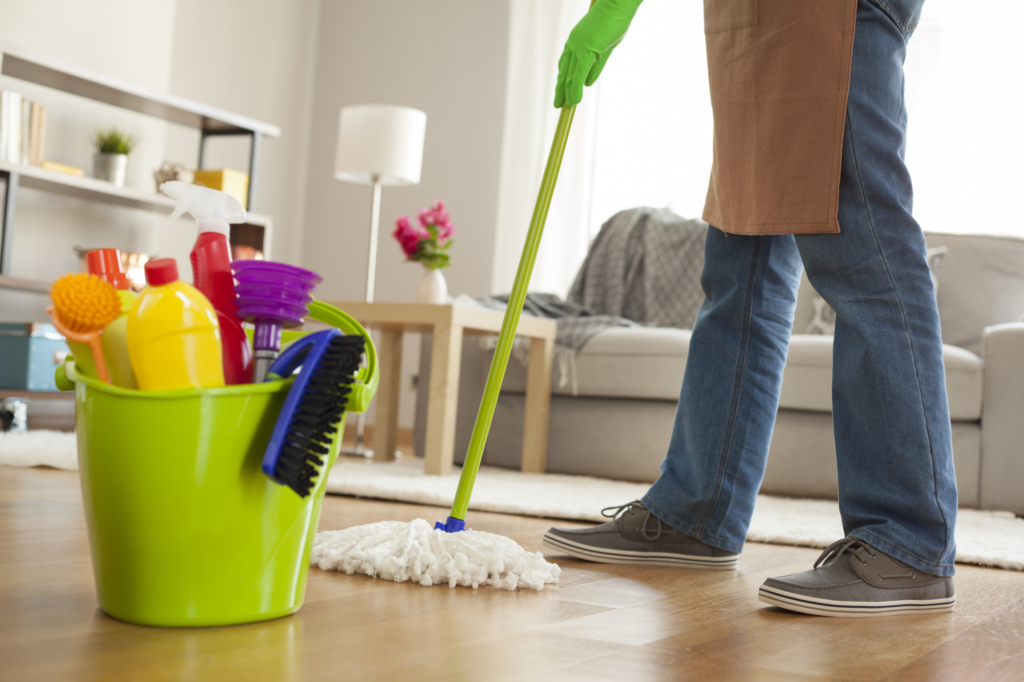Introduction
The quality of the air inside your home directly impacts your health and well-being. Dust, allergens, and pollutants can accumulate over time, affecting respiratory health and overall comfort. While regular house cleaning might seem like a mundane task, it plays a pivotal role in maintaining a healthy indoor environment.
This article explores the connection between house cleaning services and improved air quality, detailing how consistent cleaning routines combat allergens and pollutants. With the help of professional cleaning services like Sapphire Home Cleaning, homeowners can achieve a cleaner, fresher living space with minimal effort.
Understanding Indoor Air Quality
Indoor air quality (IAQ) refers to the cleanliness and composition of the air inside a building. Poor IAQ is often caused by a buildup of pollutants, allergens, and moisture.
Common Indoor Pollutants
- Dust and Dust Mites
- Dust particles accumulate on surfaces and harbor microscopic dust mites.
- These allergens can trigger asthma, allergies, and other respiratory issues.
- Pet Dander
- Hair, skin flakes, and saliva from pets contribute to airborne allergens.
- Regular vacuuming and grooming help reduce their impact.
- Mold and Mildew
- Moisture in kitchens, bathrooms, and basements promotes the growth of mold and mildew.
- Mold spores can irritate lungs and exacerbate allergies.
- Volatile Organic Compounds (VOCs)
- Found in cleaning products, paints, and furniture, VOCs release harmful gases that degrade air quality.
The Role of Regular House Cleaning
Frequent cleaning addresses the sources of indoor air pollution, preventing them from accumulating and spreading.
Dust Removal
- Importance: Dust is a primary carrier of allergens and irritants.
- Best Practices: Use microfiber cloths to trap dust instead of spreading it into the air.
Vacuuming and Carpet Care
- Importance: Carpets and rugs trap dirt, pet dander, and pollen.
- Best Practices: Vacuum weekly using a vacuum with a HEPA filter to capture fine particles.
Surface Sanitization
- Importance: High-touch areas like countertops and tables accumulate bacteria and dirt.
- Best Practices: Use natural, non-toxic cleaning solutions to minimize VOC emissions.
The Science Behind Deep Cleaning
While routine cleaning handles surface-level dirt, deep cleaning targets the hidden pollutants that degrade air quality.
Key Areas for Deep Cleaning
- HVAC Systems
- Clean air ducts and replace filters regularly to prevent recirculation of dust and mold spores.
- Upholstery and Drapes
- Fabric furniture and curtains trap dust and allergens, requiring occasional steam cleaning.
- Baseboards and Vents
- Often overlooked, these areas collect significant amounts of dust over time.
How Professionals Help
- Deep cleaning services use industrial-grade equipment to eliminate particles that routine cleaning misses.
- Companies like Sapphire Home Cleaning offer tailored deep cleaning solutions to address specific concerns, ensuring healthier indoor air.
Preventing Common Air Quality Issues
Taking proactive steps can reduce the presence of pollutants and allergens in your home.
Ventilation
- Why It Matters: Proper ventilation dilutes indoor pollutants and brings in fresh air.
- How to Improve: Open windows regularly or use air purifiers to maintain airflow.
Moisture Control
- Why It Matters: High humidity levels encourage mold growth.
- How to Improve: Use dehumidifiers in damp areas like basements or bathrooms.
Avoiding Harsh Chemicals
- Why It Matters: Many cleaning products release VOCs that degrade air quality.
- How to Improve: Opt for eco-friendly alternatives with natural ingredients.
Incorporating Professional Cleaning Services
Professional cleaning services offer expertise and resources that elevate air quality beyond what DIY methods achieve.
Benefits of Professional Help
- Thorough Cleaning: Professionals target areas often missed during routine cleaning, such as vents and high ceilings.
- Advanced Equipment: HEPA vacuums and steam cleaners remove allergens more effectively than standard tools.
- Time Efficiency: Professional services save homeowners time while delivering consistent results.
Trusted providers like Sapphire Home Cleaning ensure your home stays clean and your air stays fresh with their comprehensive house cleaning services.
Establishing a Cleaning Routine
Creating a regular cleaning schedule helps maintain air quality year-round.
Daily Tasks
- Wipe down frequently touched surfaces like counters, doorknobs, and light switches.
- Sweep or vacuum high-traffic areas to remove dirt and debris.
Weekly Tasks
- Vacuum carpets, rugs, and furniture using a HEPA filter.
- Dust surfaces, including shelves, picture frames, and electronics.
Seasonal Tasks
- Deep-clean HVAC systems and replace filters.
- Wash or dry-clean curtains, pillows, and bedding to remove allergens.
The Impact of Eco-Friendly Cleaning
Green cleaning practices minimize environmental impact while maintaining air quality.
Benefits of Green Cleaning
- Reduced VOCs: Natural products prevent harmful chemical emissions.
- Safer for Allergies: Non-toxic solutions are gentle on respiratory systems.
- Sustainable Practices: Eco-friendly tools and products reduce waste.
Green Cleaning Tips
- Use homemade cleaners made from vinegar, baking soda, and lemon.
- Opt for biodegradable cleaning cloths and reusable mop pads.
Monitoring and Improving Air Quality
Even with a solid cleaning routine, monitoring air quality helps ensure optimal conditions.
Tools for Monitoring
- Air Quality Monitors: Track pollutants, humidity levels, and temperature.
- HEPA Air Purifiers: Capture airborne particles, improving overall air quality.
Quick Fixes for Immediate Improvement
- Add indoor plants like peace lilies or spider plants, which naturally filter the air.
- Keep doors and windows closed during high-pollen seasons to minimize allergens.
Conclusion
Regular house cleaning is a powerful tool for improving indoor air quality and creating a healthier home. By addressing dust, allergens, and pollutants through consistent cleaning routines and professional services, homeowners can breathe easier and enjoy a more comfortable living space.
For those seeking reliable assistance, Sapphire Home Cleaning offers expert house cleaning services that prioritize your home’s cleanliness and your family’s health. A clean home isn’t just about appearance—it’s about ensuring the air you breathe is fresh and free from harmful particles.




